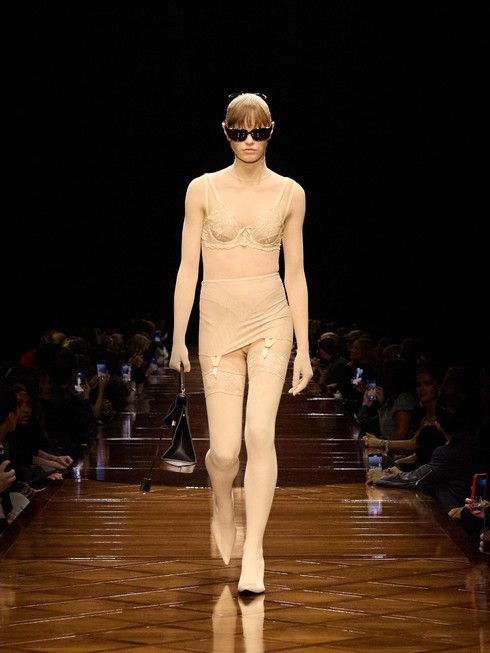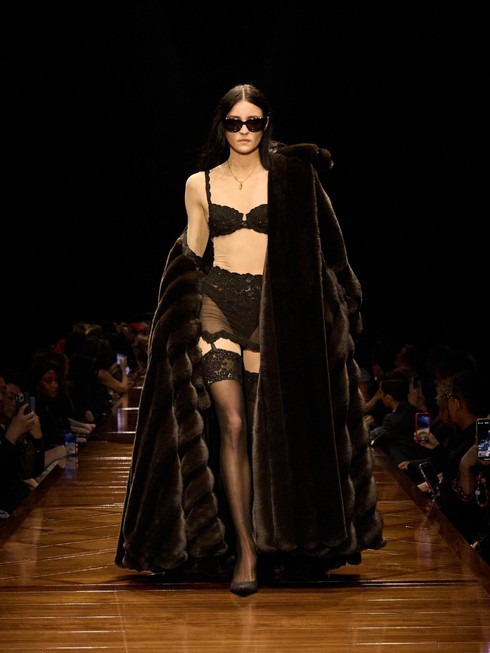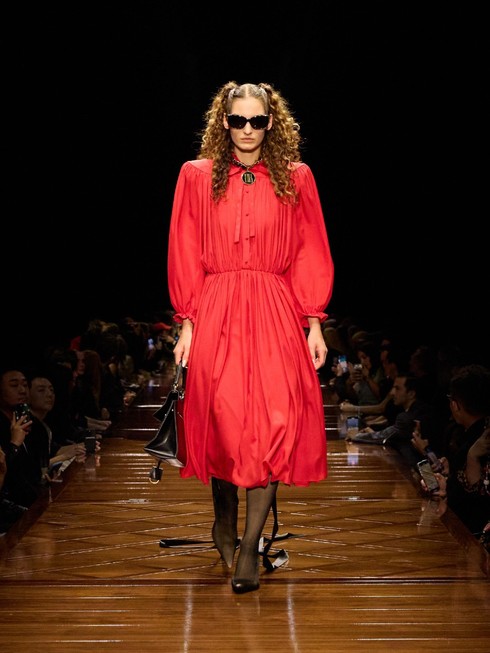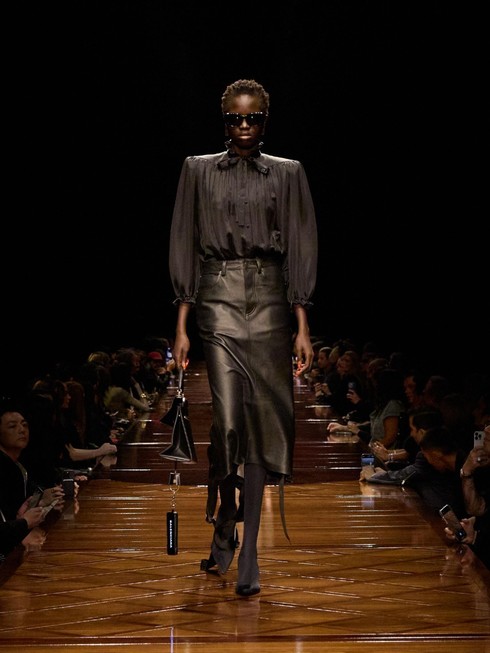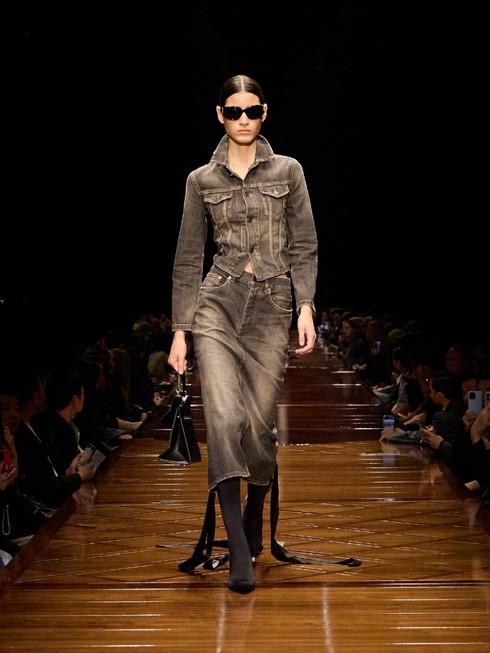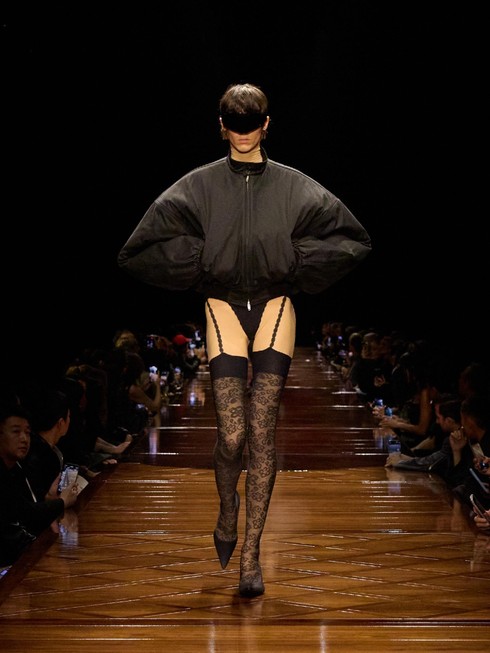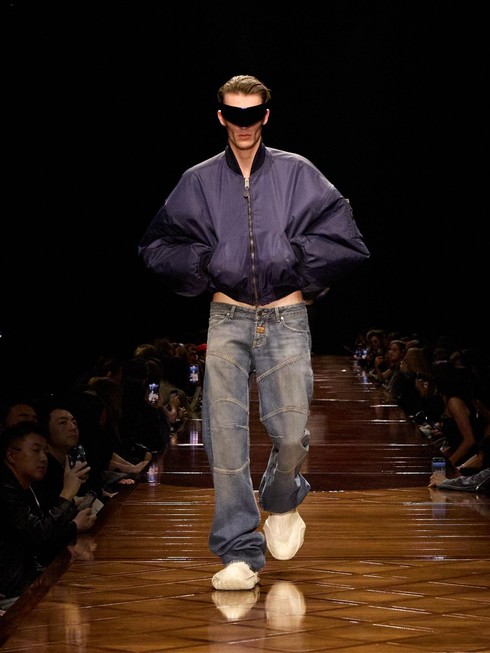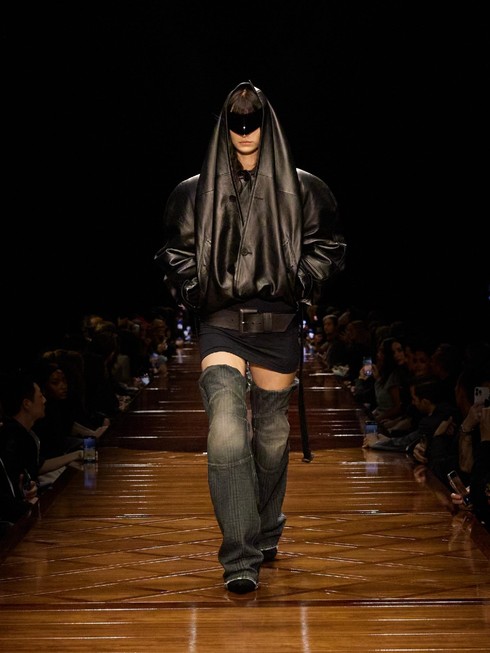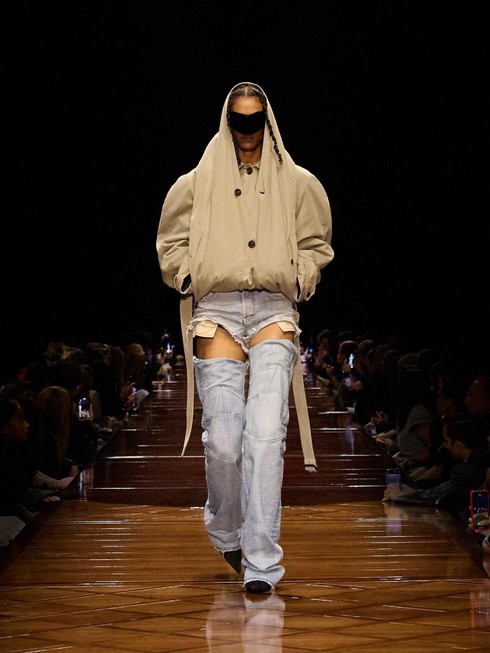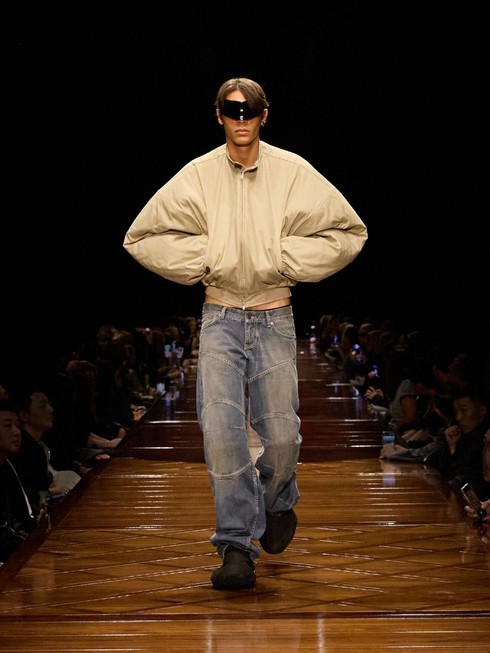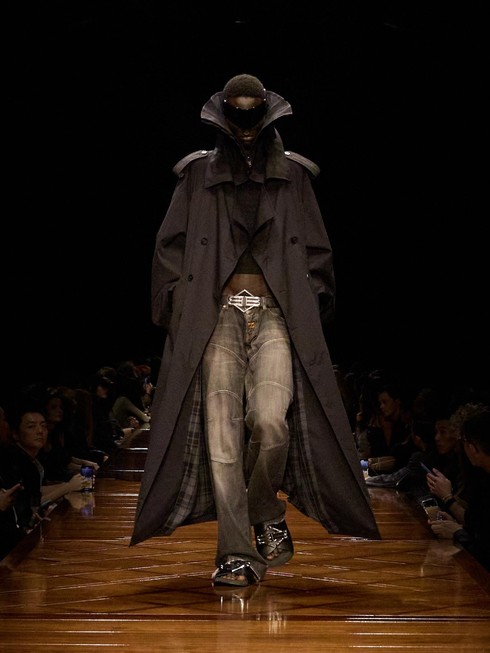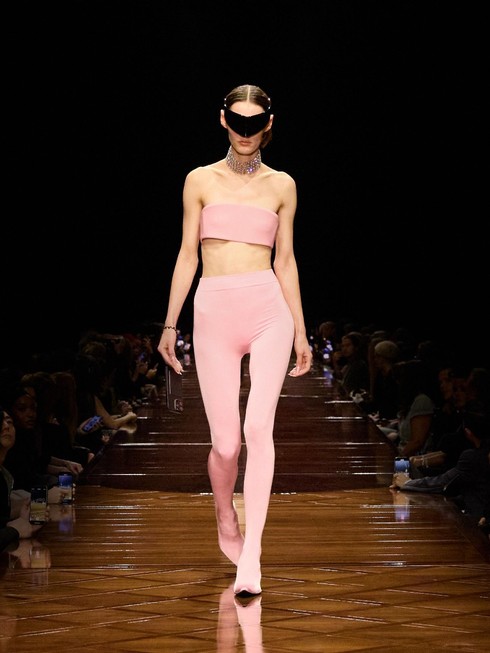


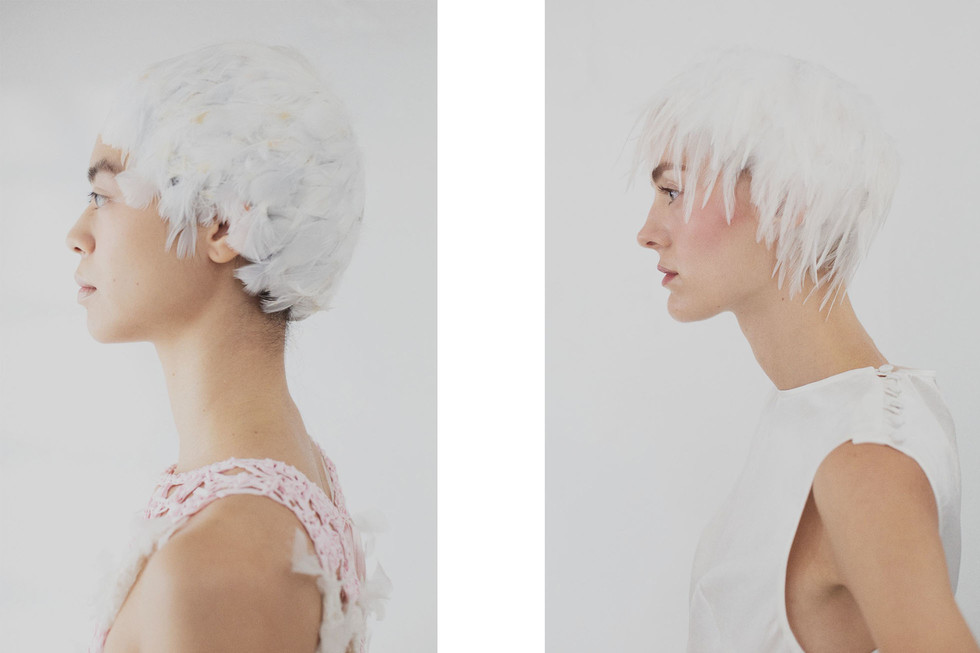
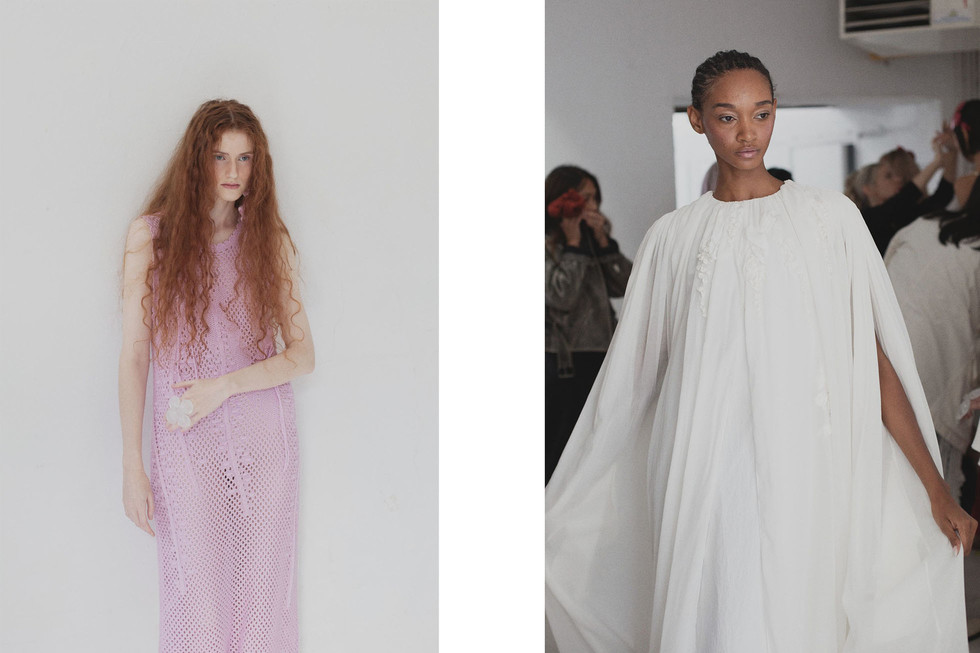


Demna's Balenciaga SS25 show brought a daring reinterpretation of wardrobe staples to Paris Fashion Week, and in a bold twist, the catwalk itself was a massive table. Models strutted across the table, showcasing a collection that merged everyday garments with avant-garde flair, reflecting the show's playful take on fashion norms.
Key looks included skin-tone bodysuits and pantashoes featuring trompe-l'œil lingerie detailing, backless silk dresses with corset-style lacing, and super low-rise jeans reimagined as thigh-high boots. The collection explored “fashion victim” silhouettes by splicing together wardrobe archetypes, offering a fresh take on tailored garments constructed from five-pocket denim and multipurpose outerwear like Perfecto jackets that transform into dresses.
Accessories were just as inventive, featuring ultra-lightweight, packable top-handle nano bags, convertible handbags with detachable handles, and minimal high-top sneakers. Injection-molded mono-lens eyewear and see-through caps added a futuristic touch.
The combination of fashion-forward designs and the unconventional catwalk underscored Balenciaga's continued innovation, blending functional streetwear with high-fashion experimentation — all served on the table.
